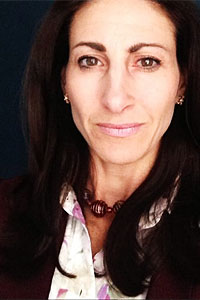
To a politically attuned American, the French presidential election sounds familiar: A great but divided country facing economic and social problems grows disillusioned with the political class. Cue a populist movement to rip up the script, deconstruct the state and drain the swamp, right?
Some of the parallels are genuine. There really is a voter revolt going on in France -- all the obvious candidates for the job were rejected and the two front-runners don't come from mainstream parties. And France does have a populist disruptor. That's Marine Le Pen, leader of the National Front Party, who shares with President Donald Trump an anti-immigrant, protectionist platform. Mr Trump promised to make America great again; Ms Le Pen pledges to do the same for France.
And yet don't think for a minute this means the French want a radical overhaul. While French voters want change, it's not the root-and-branch kind that Trump voters sought, or that Britons yearned for when they voted to leave the European Union. Indeed, as I learned during a recent visit, it's hard to find anyone who wants to dismantle France's fabled social contract; the bargain by which the state delivers wide-ranging services in return for collecting a hefty share of people's incomes.
In this presidential race, think of the French state as a patient on an operating table. Everyone agrees that the patient is unwell. The debate is over which of the four main candidates is best placed to administer treatment.
Ms Le Pen advocates quarantining the patient and imposing an extreme diet. Borders will be closed to foreign bodies (immigrants), and harmful influences (competition from foreign products) restricted. Her radical methods appeal to those fed up with the pain and failure of traditional medicine; she offers a clear prescription and the purifying simplicity of a detox.
Jean-Luc Melenchon, the left-wing firebrand who has surged in the polls lately, is a sort of charismatic voodoo doctor, the practitioner who ignores empirical practice and conventional wisdom. He seeks to revive Gallic glory by amping up state intervention.
Mr Melenchon wants to pull France out of treaties, including the North Atlantic Treaty Organisation and the euro. He wants to lower the retirement age to 60, reduce the workweek to 32 hours, guarantee a universal basic income and impose a tax rate of 100% on incomes that are 20 times higher than the median.
Emmanuel Macron, the former Socialist economy minister who is favoured to beat Ms Le Pen in a run-off on May 7 if both make it through Sunday's first round, is the brilliant young surgeon who offers a promise of new technologies and modern therapies to replace the tired methods of older doctors. He has styled himself as a safe pair of hands, but also an outsider who can bring order, efficiency and honesty to the French state and so improve opportunity and economic prospects.
Then there is Francois Fillon, the unexpected choice of the mainstream conservative Republican Party, who might have coasted to victory were it not for an investigation into alleged misuse of public funds in the hiring of his family members. Mr Fillon, a self-described Thatcherite, is an advocate of shock therapy, such as a pledge to cut 500,000 civil servants. Mr Fillon is the doctor who refuses to sugarcoat and advocates reconstructive surgery. But even he wants to save the patient, not kill it. His platform, for example, seeks to consult civil servants about their own restructuring.
The French social contract is fundamentally about delivering security: physical security, job security, social security. This attachment to the state, so antithetical to Americans, is historical. France's industrial and agricultural production was on its knees in 1945 and poverty and sickness were endemic. Charles de Gaulle's massive programme of nationalisation, investment and social reform revived French industry and pride, delivering a standard of living that became the envy of many.
It worked well enough for decades, but in recent years the services have grown tired or failed in some areas, such as education. They are also too expensive to deliver without asking the French to give over even more of their income. For years, governments of the left and right have tried to keep this arrangement working. In some cases, they succeeded in introducing market mechanisms that took the burden off the state. At other times, the attempt to wean the French off some protection was met with protests lasting weeks or longer.
Those who aren't benefiting from the state security blanket -- the young, the unemployed, rural inhabitants whose industries or lives have been disrupted -- have their culprits: immigrants, globalisation, the EU and establishment parties and politicians who misuse public funds. But they don't question the system itself. That is the red line French voters aren't yet willing to cross.
Four candidates face off on Sunday. Some 30% of voters are still said to be undecided. The candidates offer different therapies, but whoever wins on May 7 is going to have to be a miracle-worker to deliver on those expectations. (BLOOMBERG VIEW)
Therese Raphael writes editorials on European politics and economics for Bloomberg View. She was editorial page editor of the Wall Street Journal Europe.
